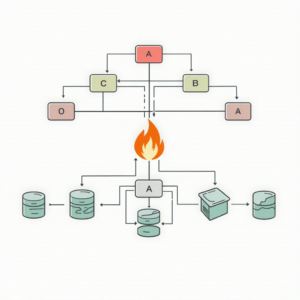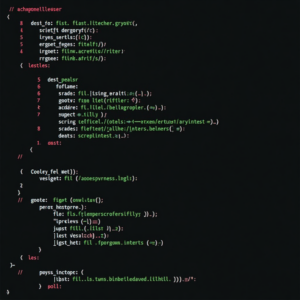
Introduction to CodeIgniter RESTful Web Services
CodeIgniter is a popular PHP framework used for building web applications. It provides a simple and elegant way to create RESTful web services. RESTful web services are an architectural style that defines a set of constraints and principles for designing networked applications. In this article, we will explore how to create RESTful web services using CodeIgniter.RESTful web services are based on the HTTP protocol and use HTTP methods such as GET, POST, PUT, and DELETE to perform CRUD (Create, Read, Update, Delete) operations. CodeIgniter provides a built-in support for creating RESTful web services through its API library.
Setting up CodeIgniter for RESTful Web Services
To start creating RESTful web services with CodeIgniter, you need to download and install the framework. Once installed, create a new controller that will handle the RESTful requests.In the controller, you need to define the methods that will handle the HTTP requests. For example, you can define a method `get_users()` that will handle the GET request to retrieve a list of users.
CodeIgniter provides a built-in support for JSON and XML data formats, which are commonly used in RESTful web services. You can use the `json_encode()` function to encode your data in JSON format and the `xml_encode()` function to encode your data in XML format.

Creating RESTful API using CodeIgniter
To create a RESTful API using CodeIgniter, you need to create a controller that will handle the HTTP requests. Let’s create a simple example of a RESTful API that will handle CRUD operations for a user entity.Firstly, create a new controller called `User.php` in the `application/controllers` directory. In this controller, define the methods that will handle the HTTP requests.
For example, you can define a method `get_users()` that will handle the GET request to retrieve a list of users. You can use the `json_encode()` function to encode the data in JSON format.
Similarly, you can define methods `get_user($id)`, `create_user()`, `update_user($id)`, and `delete_user($id)` to handle the GET, POST, PUT, and DELETE requests respectively.
Handling HTTP Requests and Responses
In CodeIgniter, you can use the `$_REQUEST` superglobal array to access the HTTP request data. You can use the `$_POST` array to access the POST request data and the `$_GET` array to access the GET request data.To send a response back to the client, you can use the `json_encode()` function to encode the data in JSON format. You can also use the `header()` function to set the HTTP headers and the `exit()` function to terminate the script execution.
For example, you can use the following code to handle a GET request to retrieve a list of users:
`$users = $this->user_model->get_users();`
`$this->output->set_content_type(‘application/json’);`
`$this->output->set_output(json_encode($users));`
Security Considerations for RESTful Web Services
When creating RESTful web services, security is a major concern. You need to ensure that your API is secure and protected from unauthorized access.One way to secure your API is to use authentication and authorization mechanisms. You can use APIs like OAuth or JWT to authenticate and authorize the clients.
You can also use HTTPS protocol to encrypt the data transmitted between the client and the server.
Additionally, you should validate and sanitize the user input data to prevent SQL injection and cross-site scripting (XSS) attacks.
Conclusion
In conclusion, CodeIgniter provides a simple and elegant way to create RESTful web services. With its built-in support for JSON and XML data formats, you can easily create RESTful APIs that can be consumed by a variety of clients.By following the principles outlined in this article, you can create secure and scalable RESTful web services using CodeIgniter. Remember to always validate and sanitize user input data and use authentication and authorization mechanisms to protect your API.
With CodeIgniter, you can create RESTful web services that are scalable, flexible, and easy to maintain. So, get started with CodeIgniter today and build your next-generation RESTful web services.